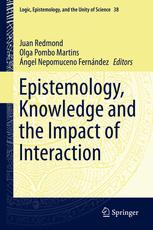

Most ebook files are in PDF format, so you can easily read them using various software such as Foxit Reader or directly on the Google Chrome browser.
Some ebook files are released by publishers in other formats such as .awz, .mobi, .epub, .fb2, etc. You may need to install specific software to read these formats on mobile/PC, such as Calibre.
Please read the tutorial at this link: https://ebookbell.com/faq
We offer FREE conversion to the popular formats you request; however, this may take some time. Therefore, right after payment, please email us, and we will try to provide the service as quickly as possible.
For some exceptional file formats or broken links (if any), please refrain from opening any disputes. Instead, email us first, and we will try to assist within a maximum of 6 hours.
EbookBell Team

4.3
58 reviewsWith this volume of the series Logic, Epistemology, and the Unity of Science edited by S. Rahman et al. a challenging dialogue is being continued. The series’ first volume argued that one way to recover the connections between logic, philosophy of sciences, and sciences is to acknowledge the host of alternative logics which are currently being developed. The present volume focuses on four key themes. First of all, several chapters unpack the connection between knowledge and epistemology with particular focus on the notion of knowledge as resulting from interaction. Secondly, new epistemological perspectives on linguistics, the foundations of mathematics and logic, physics, biology and law are a subject of analysis. Thirdly, several chapters are dedicated to a discussion of Constructive Type Theory and more generally of the proof-theoretical notion of meaning.Finally, the book brings together studies on the epistemic role of abduction and argumentation theory, both linked to non-monotonic approaches to the dynamics of knowledge.